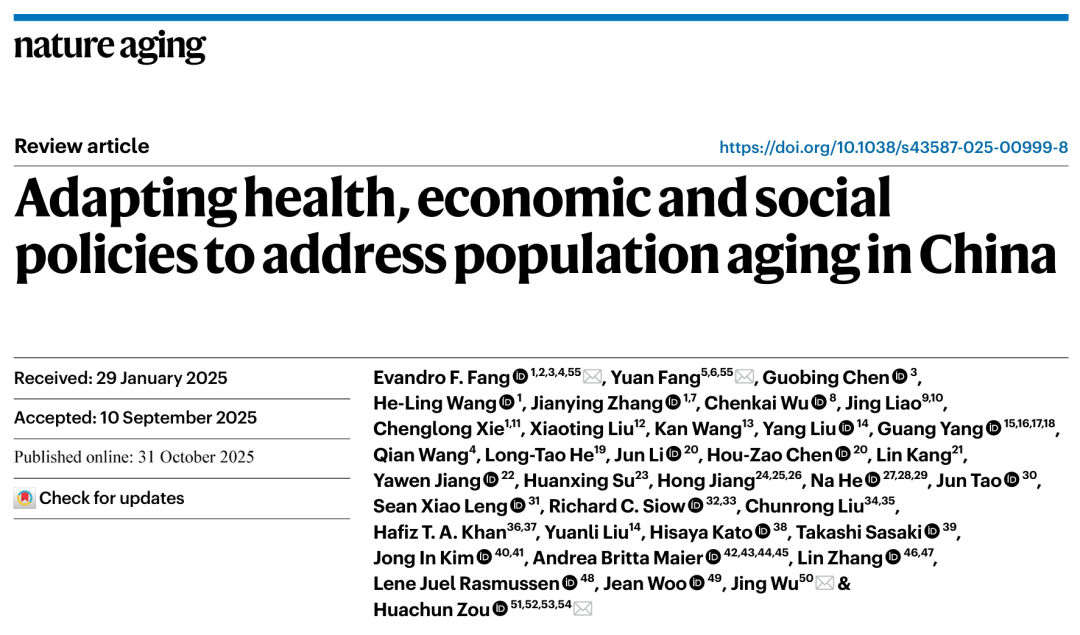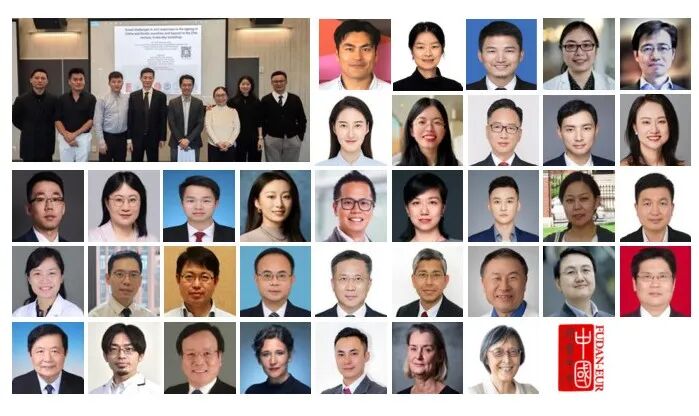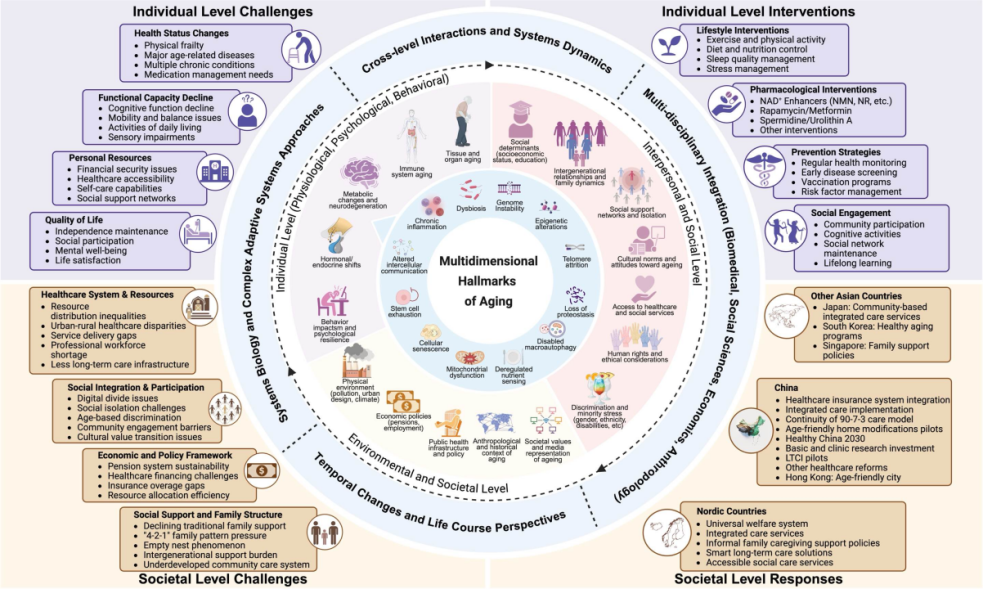作者:邹华春等 发布时间:2025-11-20 20:20:59 来源:Nature Aging+收藏本文

2025年10月31日,复旦欧洲中国研究中心(FECCS)推进协作的综述论文“Adapting health, economic, and social policies to address population aging in China”于Nature Aging正式线上发表。该成果是来自复旦大学、奥斯陆大学、牛津大学、新加坡国立大学、约翰斯·霍普金斯大学、香港中文大学、墨尔本大学、哥本哈根大学等机构在内的30余位专家进行跨学科通力合作的结晶,由复旦大学邹华春教授、奥斯陆大学方飞教授(挪威科学与文学院院士)、方圆博士后、哥德堡大学吴晶副教授等协调完成。文章聚焦社会医疗保险、长期照护制度、社区居家养老及老年公共卫生干预等领域,既总结中国经验,也为全球共同应对老龄化挑战提供了重要借鉴。此项成果是FECCS近年来推动国际学术合作的集中体现,此前,中心在瑞典和挪威举办相关国际研讨会,持续推进老龄化议题的多学科交流与研讨,为该研究进展提供了重要的铺垫和框架。

Figure 1. 老龄化问题跨学科国际合作团队
FECCS
The Fudan European Centre for China Studies (FECCS) is pleased to announce the publication of a major review article, Adapting health, economic, and social policies to address population aging in China, which was recently published in Nature Aging.
This joint review project was led by Professor Evandro Fei Fang (University of Oslo and member of the Norwegian Academy of Science and Letters), together with Dr. Yuan Fang (University of Oslo), Professor Huachun Zou (Fudan University), and Professor Jing Wu (University of Gothenburg), with interdisciplinary contributions from more than 30 global experts (Figure 1). The review seeks to provide a comprehensive and authoritative assessment of China’s progress, challenges, and policy options in response to population aging in the context of major breakthroughs in basic and translational research, shifts in healthcare paradigms, evolving socio-economic-political dynamics, and policy innovations.
A multi-level framework
The authors synthesize China’s current policies towards promoting healthy longevity in the general population, focusing on social health insurance, long-term care insurance (LTCI), community and home-based care, and palliative care, as well as gerontological research, public health prevention, and nutritional and medical interventions, while identifying strengths and gaps. The authors propose a multi-level framework (Figure 2) to tackle aging challenges at molecular, individual, and population/societal levels, offering insights not only for China but also for countries worldwide facing similar demographic shifts.
This publication is the result of a focused academic collaboration fostered by FECCS over the last few years. To lay a solid foundation and framework for this review article, FECCS sponsored the international symposium “Grand Challenges and Responses to Ageing in China and Nordic Countries and Beyond in the 21st Century”(link:https://noage100.com/2024/11/18/grand-challenges-in-and-responses-to-the-ageing-in-china-and-nordic-countries-and-beyond-in-the-21st-century-a-two-day-workshop/), which was held at the University of Oslo in November 2024. Prior to this, FECCS co-organized the symposium “Aged care in context and across disciplines” in April 2023, which was actively engaged by several co-authors of this review article. An edited volume resulting from this symposium was also published in 2024 (see Sino-Nordic Aged Care link:https://www.cambridgescholars.com/product/978-1-0364-1423-8).

Figure 2.A summary of proposed approaches in tackling aging and diseases at molecular, individual and population/societal levels.
Abstract
Despite its rapid economic rise over the past four decades, China now grapples with the challenge of accommodating and supporting its expanding aging population. In 2020, 18% of its population were over age 60, and 2.5% were over age 80, projected to rise to 39% and 10%, respectively, by 2050. This demographic shift places China at the forefront of diverse individual, familial and societal challenges. Here, we review these challenges in the context of emerging breakthroughs in basic and translational research, shifts in healthcare paradigms, evolving socioeconomic and political dynamics, and policy innovations. We synthesize China’s current policies toward promoting healthy longevity in the general population, focusing on social health insurance, long-term care insurance, community and home-based care and palliative care, as well as gerontological research, public health prevention, nutritional and medical interventions, while identifying strengths and gaps. Finally, we propose suggestions to promote a more inclusive, resilient and happier aging society within China’s distinctive sociopolitical and cultural context.
Link
https://www.nature.com/articles/s43587-025-00999-8